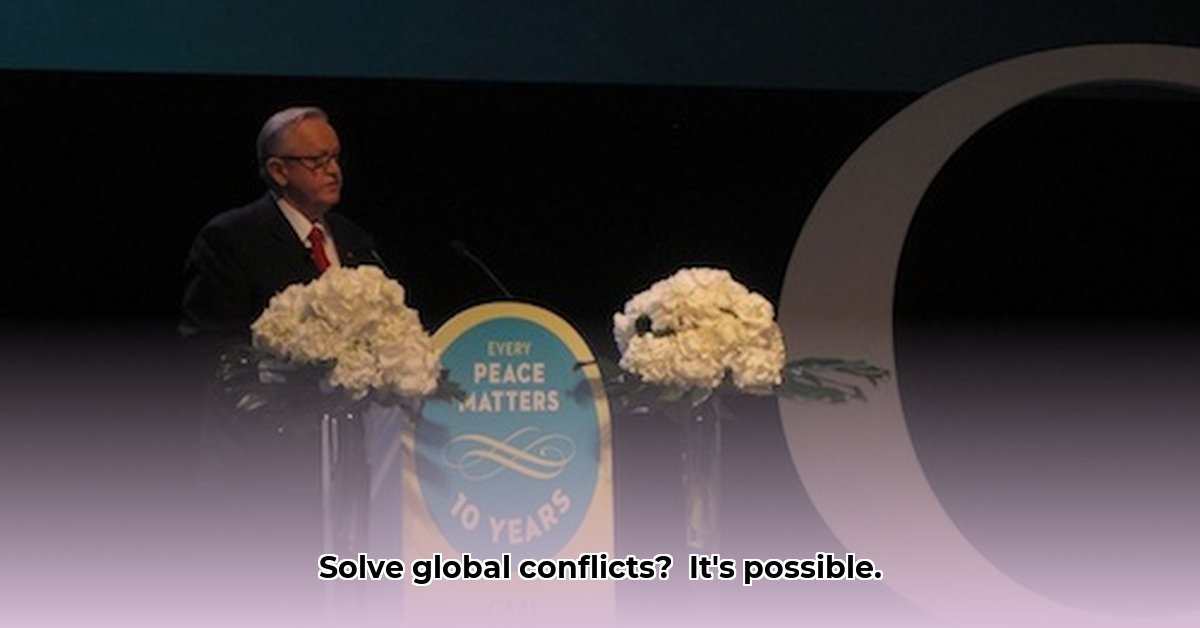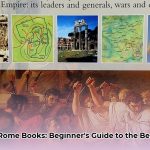# Martti Ahtisaari and the Crisis Management Initiative: Championing Peace Through Mediation
Imagine a world where conflicts end not with battles, but with dialogue. That vision fueled Martti Ahtisaari, the former President of Finland and Nobel Peace Prize laureate, who dedicated his life to building bridges in the world's most troubled regions. The organization he founded, the Crisis Management Initiative (CMI), quietly works to foster sustainable peace through dialogue and inclusive approaches. This is the story of CMI, exploring how it brings people together, empowers local voices, and makes a tangible difference in the lives of those caught in conflict.
## The Crisis Management Initiative: A Legacy of Peace
The Crisis Management Initiative (CMI) distinguishes itself by focusing on "quiet diplomacy," prioritizing dialogue and trust-building over headline-grabbing interventions. Founded in 2000 by Martti Ahtisaari after his term as President of Finland, CMI addresses the root causes of conflict by working directly with communities and local leaders. CMI distinguishes itself by empowering local communities to lead peace efforts. How does CMI ensure these efforts lead to lasting peace in turbulent regions?
CMI's approach centers on inclusivity, ensuring that peacebuilding efforts reflect the needs of the people on the ground. By working *with* local leaders, community members, and especially women, CMI fosters self-reliance rather than dependency. This grassroots approach may yield slower results, but it cultivates sustainable peace. It is an investment in long-term stability rather than a temporary fix.
Martti Ahtisaari’s vision extended beyond immediate conflict resolution. He believed in addressing the underlying issues that fuel instability, empowering communities to manage their own conflicts, and fostering self-reliance. This approach acknowledged that lasting peace cannot be imposed from outside; it blossoms from within.
**Martti Ahtisaari: A Life Dedicated to Peace**
Martti Ahtisaari's dedication to peacebuilding spanned decades and continents. Before founding CMI, he served as a UN diplomat and played a crucial role in bringing independence to Namibia, Serbia’s withdrawal from Kosovo, and autonomy for Aceh in Indonesia. His efforts earned him the Nobel Peace Prize in 2008. Ahtisaari's work was rooted in the belief that dialogue and understanding are essential tools for resolving conflicts and building a more just world.
Ahtisaari embodied the spirit of a global citizen, yet he remained deeply connected to his Finnish roots and the Nordic model of social justice. He championed the Nordic welfare state as an inspiration for others, believing that equality and social well-being are essential for preventing conflict.
**Measuring Impact: Stories and Data**
Quantifying the impact of peacebuilding initiatives remains a challenge. How do you measure the *absence* of conflict? While readily available data may be limited, stories from conflict zones offer a compelling narrative of progress. CMI is actively working to enhance data collection and demonstrate the value of its approach with concrete evidence.
**Challenges and Opportunities for the Future**
CMI faces the ongoing challenges of maintaining consistent funding and ensuring the long-term sustainability of its initiatives. Shifts in global politics can impact their work. To overcome these hurdles, CMI emphasizes continuous innovation, strategic partnerships, and creative solutions.
**A Collaborative Approach**
CMI operates through collaboration, working with funding organizations, community groups, international bodies, and governments. This collaborative spirit reflects the understanding that lasting peace requires shared responsibility and unified action.
**Enhancing CMI's Influence: Actionable Steps**
To amplify CMI's impact, consider these steps:
1. **Refining Data Collection:** Improve data collection methods to accurately measure the outcomes of interventions. This builds transparency and confidence.
2. **Diversifying Funding:** Secure a diverse and reliable funding base to ensure long-term sustainability.
3. **Strengthening Local Capacity:** Invest in training programs and mentorship initiatives to create self-sustaining peace within communities.
4. **Developing Standardized Methodologies:** Establish a framework for evaluating interventions to improve transparency and accountability.
5. **Advocating for Policy Change:** Engage in advocating for policies that promote sustainable peace and reconciliation.
**Risk Assessment for CMI**
| Risk Factor | Likelihood | Impact | Mitigation Strategy |
|----------------------------------|-------------|-----------------|--------------------------------------------------------------------------------------------------------------------------------------------------|
| Funding Volatility | Medium-High | High | Diversify funding sources; build strong relationships with multiple donors; explore alternative funding models (e.g., social impact bonds). |
| Political Instability | High | Very High | Develop flexible strategies adaptable to changing political landscapes; prioritize local ownership and leadership in initiatives. |
| Capacity Building Challenges | Medium | Medium-High | Invest in long-term training and mentorship programs; build local expertise and knowledge; partner with established local institutions. |
| Lack of Measurable Outcomes | Medium | Medium | Implement rigorous data collection and analysis frameworks; develop clear indicators of success; utilize qualitative methods alongside quantitative data. |
| Reputational Risk | Low | Medium | Maintain transparency and accountability in all operations; proactively address critical feedback and concerns. |
The Crisis Management Initiative's commitment to dialogue, collaboration, and locally-led solutions provides a foundation for building a more peaceful world. CMI's future success depends on adapting to a changing global landscape, forging strong partnerships, and communicating the impact of its work. Through continuous improvement, CMI can continue its vital role in fostering sustainable peace.
## Measuring the Long-Term Effectiveness of CMI's Peacebuilding Initiatives
**Key Takeaways:**
* Long-term evaluation is crucial for assessing peacebuilding success.
* CMI needs robust monitoring and evaluation (M&E) frameworks.
* Data collection in conflict zones presents unique challenges.
* Qualitative and quantitative data must be integrated for a complete picture.
* Collaboration and shared standards are vital for effective evaluation.
* Adaptive strategies are needed to account for changing circumstances.
### Understanding the Challenges of Long-Term Peacebuilding Evaluation
Measuring the lasting impact of peace initiatives is complex. Peacebuilding requires a nuanced approach that considers long-term sustainability. How can we ensure initiatives contribute to lasting positive change?
### The Importance of a Strong Theory of Change
CMI needs a clear theory of change that outlines the pathway from intervention to lasting peace. A well-defined theory allows the organization to identify key indicators and milestones, evaluating its performance in terms of achieving its goals.
### Choosing the Right Metrics: A Balanced Approach
A mix of quantitative and qualitative data is essential. Quantitative data provides concrete numbers, while qualitative data reveals the lived experiences and perceptions of the people affected. Both are critical for a comprehensive understanding.
### Data Collection in Challenging Environments
Gathering reliable data in conflict zones isn't easy. CMI needs to develop strategies for safe and ethical data collection, including thoughtful consideration for community engagement and collaboration. This might involve working closely with local partners who have strong ties in the community.
### Long-Term Monitoring and Evaluation (M&E)
Long-term M&E frameworks are essential for tracking progress and making adjustments as needed.
### Collaboration and Knowledge Sharing
Learning from others is essential. CMI should actively participate in knowledge-sharing networks.
Latest posts by Lola Sofia (see all)
- Unlock Ancient Roman Jewelry’s Secrets: History, Materials, & Symbolism Revealed - August 14, 2025
- Unveiling Ancient Roman Mythical Creatures: Legends, Powers & Origins Defined for Today’s Enthusiast - August 14, 2025
- Unlock Ancient Secrets: Ancient Roman Attire Women, Status, & Materials [Guide] - August 14, 2025
















